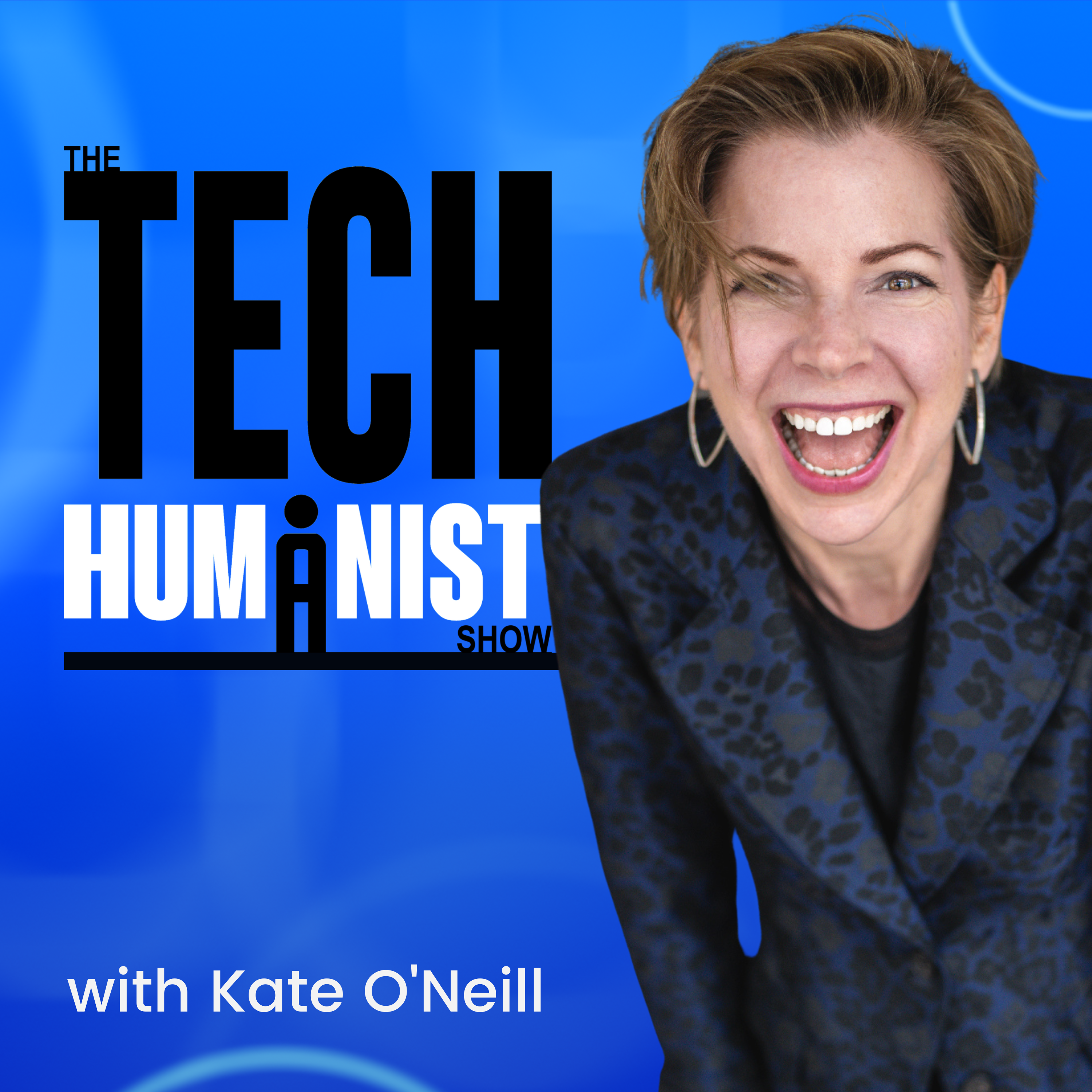Podcast: Play in new window | Download
In this insightful episode of The Tech Humanist Show, host Kate O’Neill sits down with Noah Giansiracusa, an associate professor of mathematics at Bentley University and visiting scholar at Harvard, to unravel the fascinating interplay between mathematics, social media algorithms, and their impact on society.
Noah dives into his journey, which began during the pandemic, sparking his transition from pure mathematics to applied data science. He discusses his first book aimed at a general audience, delving into the role of social media algorithms and their profound yet often misunderstood influence on our daily lives.
The conversation highlights the dual nature of mathematics, both as an art form and a practical tool, exploring the aesthetic beauty of pure math and the crucial applicability of applied math in fields such as epidemiological modeling. Noah shares his personal struggles during the pandemic, reflecting on the relevance of non-useful mathematical pursuits while others fought critical real-world issues.
A significant portion of the discussion is dedicated to artificial intelligence and the mechanics of algorithms. Noah demystifies AI, clarifies the basic functionalities of social media algorithms, and addresses common misconceptions about AI’s omniscience and ability to infer truthfulness.
Listeners will gain valuable insights into how AI and algorithms collect and use data, amplify societal issues, and shape user experiences on platforms driven by engagement metrics. Noah emphasizes the importance of digital literacy and understanding these technologies to better navigate the information ecosystem and protect oneself from misinformation.
Kate and Noah also touch on the ethical considerations and need for greater transparency in algorithmic operations, advocating for regulatory measures to enhance public trust and user engagement.
As a preview to Noah’s upcoming book “Robin Hood Math,” due in summer 2025, the episode offers a deep dive into the world of algorithms, math, and their overarching impact on society.
Don’t miss this enlightening discussion that bridges the gap between complex mathematical concepts and everyday technology, making it accessible and relevant for everyone. Tune in and empower yourself with the knowledge to understand and navigate the data-driven world.
Topics Covered:
- Noah Giansiracusa’s career and academic journey
- The role of pure mathematics as artistic expression
- Applied mathematics and its practical applications
- The impact of the COVID-19 pandemic on perceptions of math’s utility
- Understanding social media algorithms and their societal implications
- AI, deep learning, and the data that fuels them
- The necessity of transparency and regulation in algorithmic design
- Practical tips for managing digital experiences
- Upcoming book: “Robin Hood Math” by Noah Giansiracusa
Tune in for an episode that promises to enrich your understanding of the invisible algorithms shaping your world!
Guest Contact Information:
- Website:www.noahgian.com
- Twitter:@NoahGiansiracusa
- LinkedIn:Noah Giansiracusa
📋 Episode Chapters
00:00 Noah Giansiracusa: Math professor, author, public speaker.
04:48 Enjoyed diverse interaction; different, practical educational approach.
07:38 Pandemic inspired math book and broader discussions.
13:03 Connecting math’s beauty to AI’s meaningful impact.
14:53 Data competitions test methods; neural networks are brain-inspired.
17:51 AI thrives on data from surveillance capitalism.
21:49 Understanding algorithms is essential for informed citizenship.
26:44 Engagement data drives your social media experience.
28:23 Social media engagements don’t always reflect truth.
31:15 AB tests yield practical data unlike open web.
37:22 Simplify algorithms, improve social media experiences.
38:32 Social media uses AI for weighted engagement sums.
44:21 Curate content wisely; leaders make trustworthy AI decisions.
47:16 Thoughtful communication and transparency in using tools.
48:28 Transparency and regulation needed for algorithm insights.
